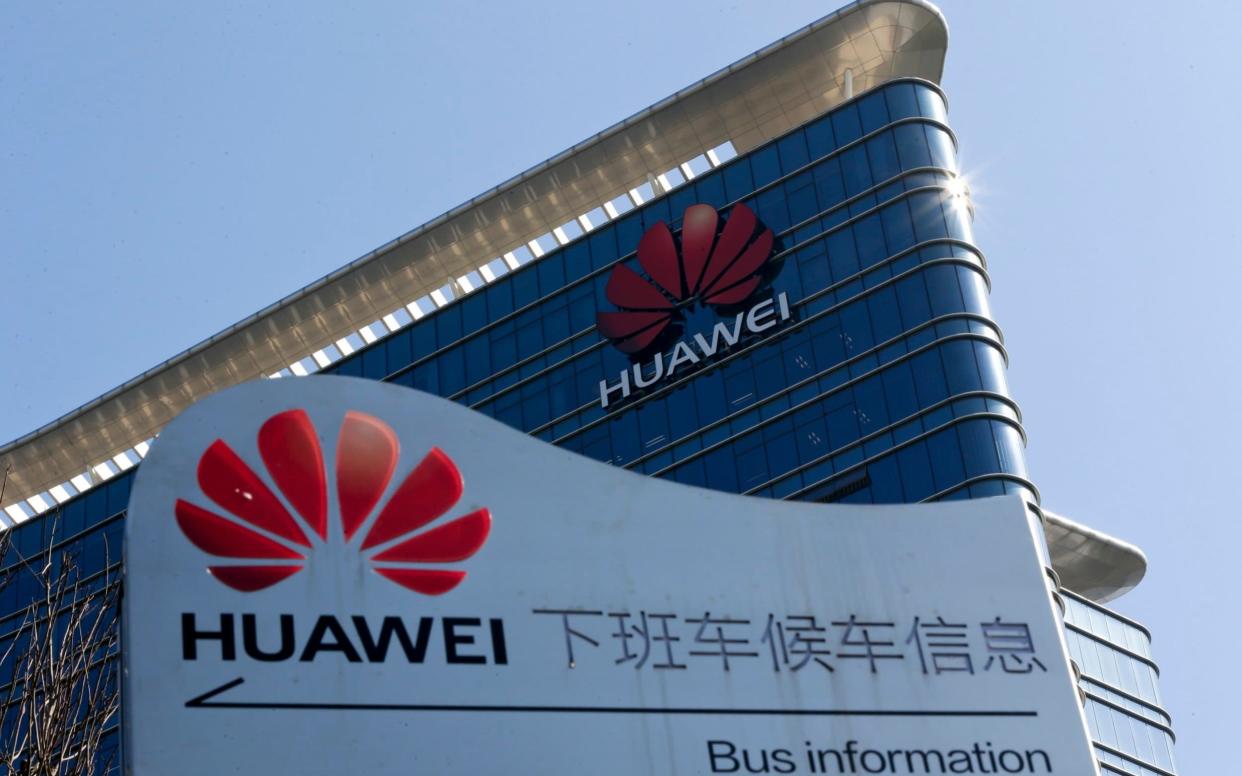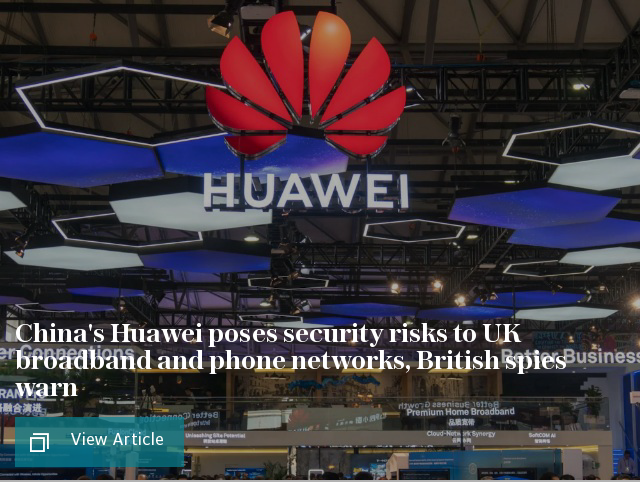UK telcos under pressure to review Huawei 5G deals after defence secretary airs ‘grave concerns’

Some of Britain's largest mobile providers are facing growing pressure to review their links with Huawei after the UK defence secretary voiced "grave concerns" over use of the controversial Chinese company's equipment in the roll-out of 5G telecom networks across the UK, amid espionage fears.
Three, a subsidiary of Hong Kong conglomerate Hutchison Holdings, signed a deal with Huawei in June to act as a key supplier for a £2bn project to build 5G networks in the UK. Hutchison is part of a sprawling international business empire controlled by Li Ka-Shing, Hong Kong's richest man. BT signed a similar deal with Huawei in February.
Yesterday, Three said it was in "close contact" with the UK government after Gavin Williamson, defence secretary warned of his "very deep concerns" over the role Huawei is playing providing technology to upgrade Britain's next generation mobile network.
Mr Williamson warned that Huawei’s role would have to be looked at “very closely” amid growing global concerns from the US, Australia and New Zealand about the security risks posed by the Chinese company.
He said: “We’ve got to recognise the fact... the Chinese state does sometimes act in a malign way.”
His comments come amid reports that US president Donald Trump is considering an executive order that would bar US companies from using telecoms equipment made by Huawei and ZTE, another Chinese firm.
Guo Ping, rotating chairman of Huawei, which is expecting a 21pc jump in revenues this year to $108bn, hit back yesterday, saying: “the hardship can’t stop us from advancing”.
A Huawei spokesperson said: “Cybersecurity is Huawei’s number one priority, and an area in which we are investing heavily."
Alongside its smartphone business, Huawei, China’s largest company in terms of sales, develops equipment for telecoms infrastructure, such as antennae and transmission gear. It has operated in the UK since 2001.

Other UK telecom firms use Huawei equipment in their telecom infrastructure but Three is among the first to sign a deal with the group for 5G technology.
Providers including Three, EE, O2 and Vodafone have claimed that Huawei equipment will not be in their core infrastructure – the most critical part of the 5G system. The companies will instead turn to the likes of Nokia and Ericsson for core components.
However, a significant amount of Huawei technology will be used in peripheral kit. Vodafone currently uses Huawei radio antennae for its 4G services. O2 claims that less than 5pc of its network uses Huawei.
Last month, EE owner BT moved to strip Huawei equipment out of its core. The move was to align EE with its “network architecture principles” following BT’s acquisition of EE in 2016. EE continues to see Huawei as “an important equipment provider outside the core network”.
UK mobile operators have an extensive history with Huawei in the UK. BT’s relationship with the Chinese telecoms giant stretches back to 2005, while Vodafone established a “strategic partnership” in 2009. Three, EE, O2 and Vodafone are all working closely with the Government’s National Cyber Security Centre to address security concerns.
In a statement, a Three spokesperson said: “We continue to keep in close contact with Government and the NCSC on the issue and will abide by any directions given by them."
“We have tested 5G Huawei radio antenna in a few locations in the UK and we will also test Ericsson kit. We use an entirely different supplier for the core,” a Vodafone spokesperson said.

